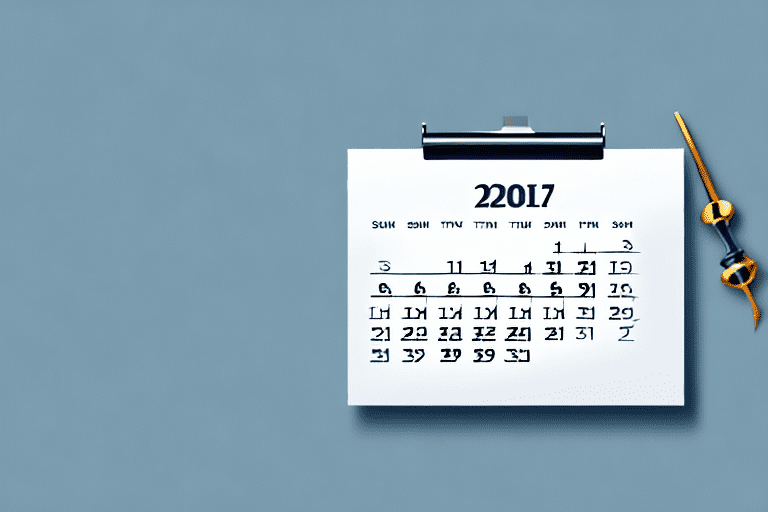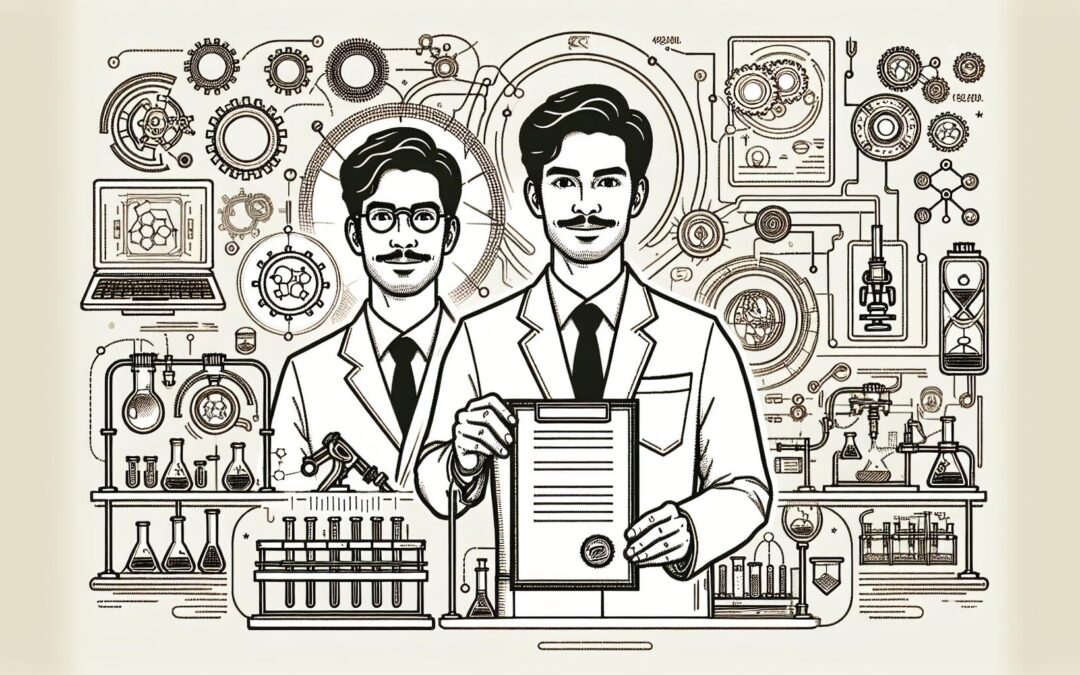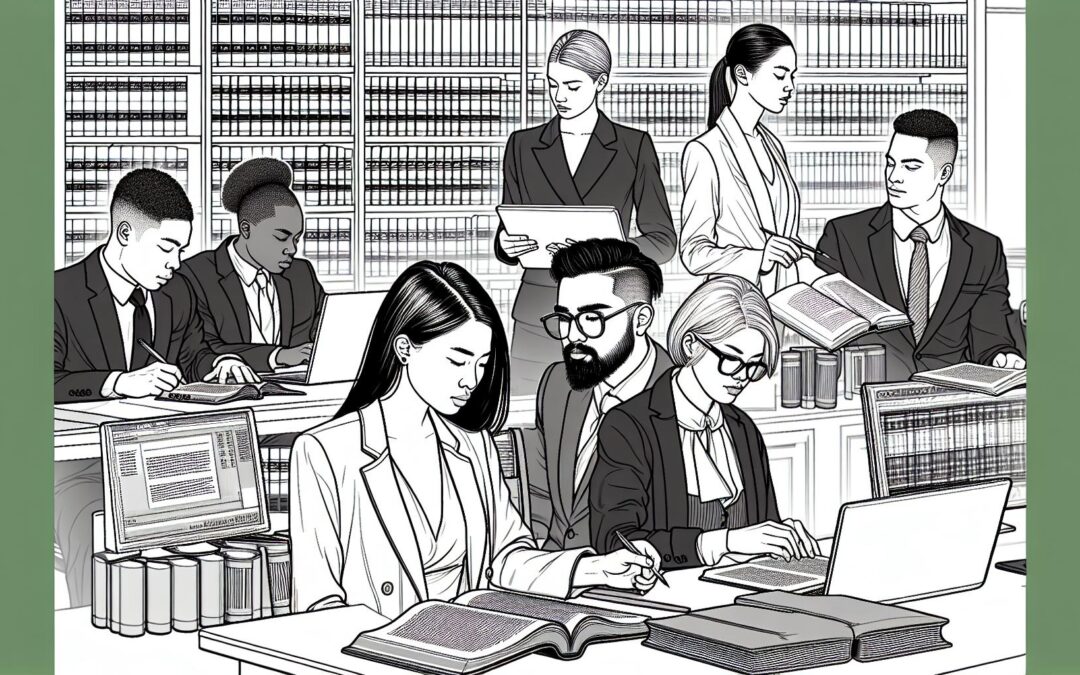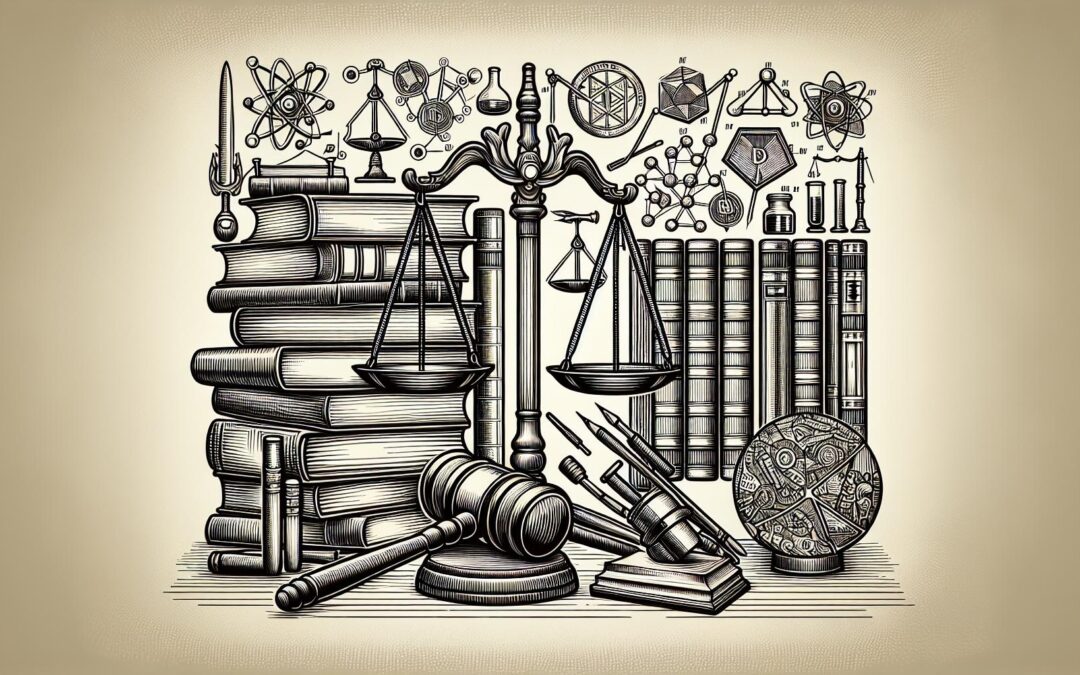The Patent Bar is a crucial examination for aspiring patent attorneys. It is essential for those seeking to practice before the United States Patent and Trademark Office (USPTO). If you aim to become a patent attorney, understanding the timing and logistics of the Patent Bar exam is key to your career progression.
Understanding the Patent Bar
What is the Patent Bar?
The Patent Bar, officially known as the Examination for Registration to Practice in Patent Cases Before the United States Patent and Trademark Office, is a comprehensive test that evaluates individuals’ knowledge and understanding of patent law and regulations. Passing the Patent Bar exam is a requirement for practitioners who wish to represent clients in patent matters before the USPTO.
The Patent Bar exam covers a wide range of topics, including patentability requirements, patent prosecution, patent infringement, and patent litigation. It assesses candidates’ ability to analyze complex legal issues, interpret patent statutes and case law, and apply legal principles to real-world scenarios. The exam consists of multiple-choice questions and requires candidates to demonstrate a deep understanding of the intricacies of patent law.
Preparing for the Patent Bar exam is a rigorous process that requires extensive study and preparation. Candidates often spend months reviewing patent laws, regulations, and case precedents to ensure they are well-equipped to tackle the exam. Many aspiring patent attorneys enroll in specialized courses and study groups to enhance their understanding of the subject matter and improve their chances of success.
Importance of the Patent Bar for Patent Attorneys
The Patent Bar exam plays a crucial role in ensuring that only qualified individuals have the necessary knowledge and skills to handle patent cases. Passing the exam demonstrates a candidate’s understanding of patent law, rules, and procedures, emphasizing their competence and commitment to upholding the highest standards of the patent system.
Patent attorneys who have passed the Patent Bar exam are equipped with the expertise to navigate the complex and ever-evolving world of patent law. They possess a deep understanding of the patent application process, including drafting patent claims, conducting prior art searches, and responding to office actions from the USPTO. This knowledge allows them to effectively represent inventors and companies seeking patent protection for their innovations.
Furthermore, passing the Patent Bar exam is often a prerequisite for employment at prestigious law firms, corporations, and government agencies specializing in intellectual property law. It serves as a benchmark for employers to assess a candidate’s qualifications and commitment to the field. Patent attorneys who have successfully cleared this hurdle are more likely to be entrusted with high-profile cases and complex patent disputes.
Continuing education is also an essential aspect of maintaining a successful career as a patent attorney. The Patent Bar exam serves as a foundation for ongoing professional development, as attorneys must stay updated on new patent laws, court decisions, and USPTO guidelines. By staying informed and engaged, patent attorneys can provide their clients with the most accurate and effective legal representation.
Schedule of the Patent Bar Exam
The Patent Bar exam is a crucial step for individuals seeking to become registered patent agents or attorneys. It is administered by the United States Patent and Trademark Office (USPTO) throughout the year, providing aspiring patent professionals with the opportunity to demonstrate their knowledge and skills in patent law.
Frequency of the Patent Bar Exam
Unlike other professional exams, such as the bar exam for attorneys, the Patent Bar exam does not have specific dates or a couple of fixed dates when it is offered. This unique feature allows candidates to have the flexibility to choose when to take the exam, based on their level of preparedness and personal circumstances.
Throughout the year, the USPTO offers multiple testing windows for the Patent Bar exam. This ensures that candidates have ample opportunities to schedule their exams at a time that suits them best. Whether you are a recent law school graduate or a seasoned professional looking to expand your career into patent law, the availability of the exam throughout the year allows you to plan your preparation and exam date accordingly.
Specific Dates and Deadlines
While the Patent Bar exam does not have fixed dates, it is important to note that once a candidate registers for the exam, they have a limited timeframe to schedule and appear for the test. Typically, candidates have 90 days from the date of registration to sit for the exam.
This timeframe is designed to ensure that candidates maintain their momentum and focus during the preparation phase. It also helps to streamline the examination process, allowing for efficient scheduling and administration of the exam by the USPTO.
Therefore, it is crucial for aspiring patent professionals to plan and prepare accordingly. Adequate time should be allocated for studying and reviewing the vast array of patent laws, rules, and procedures that will be tested. Additionally, candidates should consider their personal commitments and obligations when selecting a suitable exam date within the 90-day window.
By carefully planning and utilizing the available resources, candidates can maximize their chances of success in the Patent Bar exam. Whether it is through self-study, attending preparatory courses, or seeking guidance from experienced patent professionals, a well-structured study plan can significantly enhance one’s understanding of patent law and increase the likelihood of passing the exam.
Ultimately, the flexibility in scheduling the Patent Bar exam, coupled with diligent preparation, allows candidates to embark on their journey towards a rewarding career in patent law. The exam serves as a gateway to becoming a registered patent agent or attorney, opening doors to exciting opportunities in the field of intellectual property.
Registration for the Patent Bar Exam
The Patent Bar exam is a crucial step for individuals seeking to become registered patent attorneys or agents. This exam, administered by the United States Patent and Trademark Office (USPTO), tests candidates on their knowledge of patent law and procedures. To register for the Patent Bar exam, candidates must submit an application through the USPTO’s online registration system.
The registration process is straightforward but requires attention to detail. Candidates must provide personal information, including their full name, contact details, and social security number. It is essential to ensure that all information provided is accurate and up-to-date, as any discrepancies may result in delays or even disqualification.
In addition to personal information, candidates must also provide their educational qualifications. This includes details of their undergraduate and graduate degrees, as well as any relevant coursework or certifications. The USPTO requires candidates to have a technical or scientific background, so it is important to highlight any relevant degrees or experience in the application.
Once the application is complete, candidates must pay a non-refundable fee to finalize their registration. The fee covers the administrative costs associated with processing the application and scheduling the exam. It is important to note that the fee is subject to change, so candidates should check the USPTO’s website for the most up-to-date information.
Registration Deadlines and Late Fees
While there are no strict registration deadlines for the Patent Bar exam due to its continuous availability, it is advisable to register well in advance to secure a suitable exam date. The USPTO operates on a first-come, first-served basis, and availability may become limited during peak periods.
Registering early not only ensures a preferred exam date but also helps avoid any unnecessary complications. Late registration may incur additional fees, which can be quite substantial. These late fees are in place to encourage candidates to plan ahead and submit their applications in a timely manner.
It is important to note that the USPTO periodically updates its exam schedule and availability. Therefore, it is essential to regularly check the USPTO’s website for any announcements or changes that may affect the registration process.
In conclusion, registering for the Patent Bar exam requires careful attention to detail and adherence to the USPTO’s guidelines. By providing accurate personal information, highlighting relevant educational qualifications, and registering early, candidates can increase their chances of securing a suitable exam date and successfully completing this important step towards becoming a registered patent attorney or agent.
Preparing for the Patent Bar Exam
Study Materials and Resources
Preparing for the Patent Bar exam requires careful planning and a comprehensive study strategy. Various resources are available to assist candidates in their preparations, including study guides, online courses, practice exams, and reference materials. It is advisable to utilize a combination of these resources to gain a well-rounded understanding of the exam content and maximize the chances of success.
Study guides are an essential tool for exam preparation. These guides provide a structured approach to studying, breaking down the exam content into manageable sections and providing explanations and examples. They often include practice questions and sample exams to test knowledge and reinforce understanding.
Online courses offer flexibility and convenience for candidates who prefer self-paced learning. These courses provide comprehensive coverage of the exam topics and may include video lectures, interactive quizzes, and discussion forums for further engagement. They can be accessed from anywhere, allowing candidates to study at their own pace and convenience.
Practice exams are crucial for familiarizing oneself with the format and content of the Patent Bar exam. These exams simulate the actual exam experience and help identify areas of weakness that require further study. By practicing under timed conditions, candidates can also improve their time management skills and build confidence in their ability to complete the exam within the allocated time.
Reference materials, such as the Manual of Patent Examining Procedure (MPEP), are indispensable resources for studying for the Patent Bar exam. The MPEP is a comprehensive guide that provides detailed information on patent laws, rules, and procedures. It serves as a valuable reference during the exam and can help clarify any doubts or uncertainties.
Tips for Effective Preparation
When preparing for the Patent Bar exam, time management and structured study habits are vital. It is recommended to create a study schedule, allocating dedicated time for different topics and sections of the exam. This approach ensures that all exam content is covered and helps prevent last-minute cramming.
Practice questions and sample exams are invaluable tools for familiarizing oneself with the format and content of the exam. By regularly practicing these questions, candidates can assess their understanding of the material and identify areas that require further study. It is important to review the answers and explanations provided for each question to gain a deeper understanding of the concepts.
Additionally, joining study groups or seeking guidance from experienced patent attorneys can provide valuable insights and support throughout the preparation process. Study groups allow candidates to collaborate with peers, discuss difficult concepts, and share study strategies. Experienced patent attorneys can provide guidance on exam preparation techniques, share their own experiences, and offer valuable tips and advice.
Furthermore, it is essential to take care of one’s physical and mental well-being during the preparation period. Getting enough sleep, eating nutritious meals, and engaging in regular physical exercise can help maintain focus and concentration. Taking breaks and practicing relaxation techniques, such as deep breathing or meditation, can also help reduce stress and improve overall productivity.
In conclusion, preparing for the Patent Bar exam requires a combination of study materials, effective time management, and support from peers and experienced professionals. By utilizing a variety of resources, creating a structured study plan, and taking care of one’s well-being, candidates can maximize their chances of success and confidently approach the exam.
Day of the Patent Bar Exam
What to Expect on Exam Day
The Patent Bar exam is a computer-based test administered at designated testing centers. On the day of the exam, candidates should arrive early to familiarize themselves with the testing environment. The exam typically consists of multiple-choice questions covering various aspects of patent law, rules, procedures, and case precedents. It is important to adhere to the time constraints for each section of the exam and maintain focus and composure throughout the test.
Post-Exam Procedures
Once the exam is complete, candidates must wait for their results. The USPTO evaluates the exam answers and notifies candidates of their pass or fail status. If successful, candidates will be eligible to apply for registration to practice before the USPTO as a patent attorney. In the event of an unsuccessful attempt, candidates may opt to retake the exam after the allowable waiting period, usually 30 days. Utilize this time effectively to address any knowledge gaps and enhance areas of weakness to increase the likelihood of a successful subsequent attempt.
In conclusion, the Patent Bar exam is a pivotal step for individuals aspiring to become patent attorneys. By understanding the timing, registration process, and preparation strategies, candidates can navigate through this examination successfully. Adequate preparation, utilizing available resources, and maintaining a focused approach can lead to a successful outcome, unlocking opportunities to practice before the USPTO and contribute to the exciting field of patent law.











